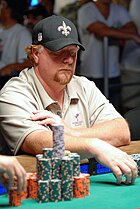Main Page
Welcome to JUSTAPEDIA®
Unleashing the power of collective wisdom.
To demonstrate the importance of maintaining neutrality and objectivity in encyclopedic resources, we have reserved a separate section of the main page for hosting the Feature Showcase, where we will display the lead of an article in Wikipedia, where Justapedia articles originated, versus the equivalent lead in a pragmatically rewritten Justapedia article. |
Total Articles: 6,578,638
Active Contributors: 582
Today: 27 April 2024
|
Introduction to JustapediaJustapedia is an open and freely accessible online encyclopedia published in English with aspirations to one day grow into other language wikis. Justapedia launched to the public on August 9, 2023, and is being developed and maintained by volunteers through open collaboration on a MediaWiki based editing platform. The platform and tools to edit are hosted and operated by the Justapedia Foundation, a US-based tax deductible section 501(c)(3) charitable organization for educational purposes. Justapedia® is the registered trademark of the Justapedia Foundation (JPF), with the origins of our articles properly attributed to the Wikimedia Foundation, Wikipedia and its many volunteers, some of whom are also Justapedians. The imported corpus of Justapedia and its subsequent contents are licensed under CC-BY-SA and GFDL licenses. Further attribution is provided in the footer of each page with a link to the originating page from Wikipedia. The footer links provide access to original author attribution in the respective article's view history menu as well as in the Page information tool in the left sidebar of the respective Wikipedia page. With the understanding that Justapedia's content was forked from the vast corpus of the English Wikipedia, which includes over 6.5 million articles, and numerous templates, projects, categories, and other freely licensed content, we face an equally large task in adapting and refining or completely changing this content to comply with Justapedia's five fundamental principles and core content policies. Many of the Wikipedia articles that have received widespread criticism from academics and the mainstream media have been forked to Justapedia, where they will be rewritten by volunteers who (a) share our mission and goals of preserving and protecting history, (b) want to restore the spirit of neutrality and objectivity, and (c) believe in the power of diverse perspectives. Happy editing! |
Selected Contents |
Selected Quote
|
Selected ImageCombined Buddhabrot from 20.000 (purple), 100.000 (blue) and 1.000.000 (white) iterations.
|
Selected sports |
Selected films |
Selected foods |
Current NewsBassirou Diomaye Faye wins Senegalese presidential election with 54.28% of votes On 25 March 2024, Bassirou Diomaye Faye clinched victory to become the fifth president of Senegal. Following the announcement of the results, incumbent president Macky Sall and his candidate, former prime minister Amadou Ba, promptly extended their congratulations to the victorious opposition candidate. (Read more) |
Feature Showcase
Justapedia's Feature Showcase presents a unique educational tool, offering visitors a direct comparison between Justapedia's article leads and those of Wikipedia. This side-by-side layout is more than a mere comparison—it is a statement of purpose, underscoring Justapedia's commitment to uphold neutrality and objectivity in the information sphere. The showcase illuminates the stark differences between an article written with a focus on unbiased information and one that may have been influenced by political agendas. By doing so, Justapedia not only highlights the potential pitfalls of informational bias but also demonstrates, through example, the core principles of its mission to provide content that embodies impartiality and factual integrity. This educational feature serves as a learning resource for discerning readers and a testament to Justapedia's dedication to unswerving neutrality in a landscape often muddied by politicization.From Justapedia
From Wikipedia
References
|
|---|
|




